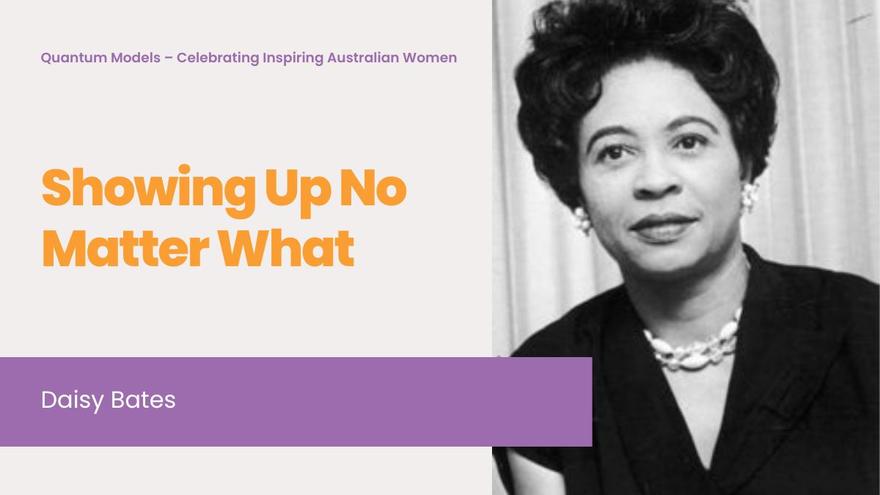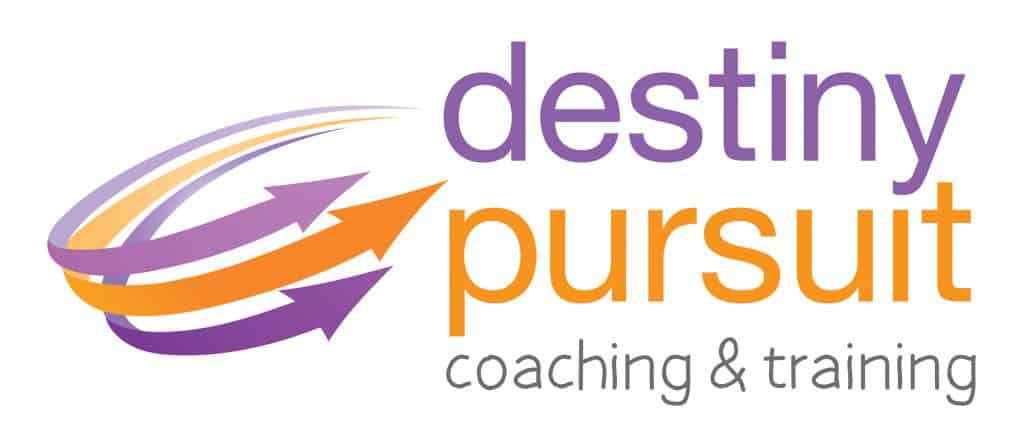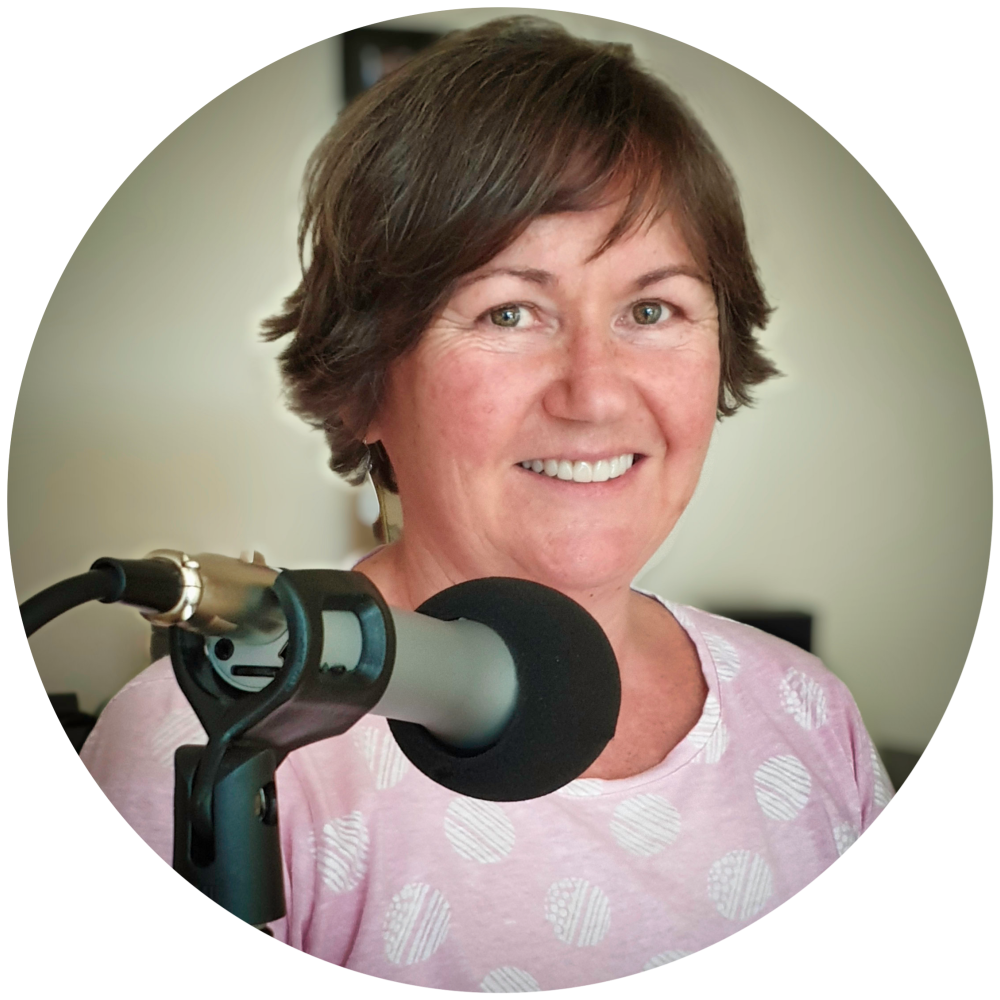Early in the 20th century Daisy May Bates certainly showed enormous behavioural flexibility when she willingly chose to forego personal comforts and went to live amongst Aboriginal people as she studied their life, culture and heritage.
Having migrated from Ireland at the age of 24 she lived in country New South Wales and Queensland for many years. After a number of unsuccessful marriages she returned to England where she worked as a journalist for newspapers and magazines. As she planned her return to Australia in 1899, Daisy read a letter published in The Times that made her aware of atrocities being committed against Aboriginals in north-west Australia. She immediately wrote to The Times offering to make a full investigation on their behalf and report to them – an offer that they accepted.
Upon her return to Australia Daisy was no doubt excited by her new found purpose. She set off using whatever means at her disposal (often donkeys and camels) and ventured across deserts and ranges through places few whites had seen, and made her way to the Trappist mission at Beagle Bay near Broome. Here she revelled in her first lengthy stay with the Aboriginal people while working at their remote settlement and began her first serious inquiries into Aboriginal culture and language. Her immense curiosity and observations were relatively unclouded by the then predominant views of Aboriginal people in Australia. Daisy’s immense behavioural flexibility allowed her to be immersed within the Beagle Bay mission where she had the privilege of learning about the community’s laws, especially in relation to family interactions and relationships, which led her to investigate their familial ties, learn their language and enabled her to be amongst the first white people to witness their sacred rituals. Daisy was a real ground-breaker!
As a result of her tremendous work, in 1904 Daisy was appointed by the Western Australia government to research the tribes of the state. She quickly set about recording data on language, myth, religion, and kinship. In a revolutionary paper on marriage customs, she uncovered new truths about the ceremony and its meaning.
The Aboriginal communities gifted Daisy with great insights into their life, customs and culture. Her publication of this vast anthropological knowledge enabled a deeper understanding of the people and their culture to be available to others. It also challenged the popular and prevalent myth that Aboriginal people were mere animals, fauna in the Australian landscape.
In 1912, Daisy became the first woman ever to be appointed Honorary Protector of Aborigines at Eucla. Living amongst the Aboriginal people and looking after them then became her life’s purpose. Over most of the next 30 years she tended the sick and elderly, the injured and frail and assisted them back to health or dignified endings, contributing in whatever way possible.
Throughout this period, Daisy also continued to write. Her accounts were published in journals and papers around the world and heralded as great, and often controversial works. When the Commonwealth National Library came to collect her words, they took away 99 boxes of valuable literature destined to demystify Aboriginal culture. Additionally, her autobiography, My Natives and I, was written and serialised.
Daisy’s vast and detailed works created a shift not only in perception of the original Australians, but even more importantly it served to undermine the efforts of white men who continued to marginalise them and justify the cruel and harsh policies and the frequent atrocities inflicted on them. Throughout her time, Daisy’s work succeeded in illustrating their humanity. Her capacity to adapt to their lifestyle and learn their languages demonstrated the enormous value behavioural flexibility brings when endeavouring to learn, discover and research.
Daisy Bates led a controversial and adventurous life. Not only did she choose to cross the world twice on her own, she also travelled where few had been throughout remote Western Australia and lived her life amongst the Aboriginal communities in both Western and South Australia. Her pursuit of knowledge and understanding in the often harsh conditions of the outback, with the critical responses she often faced from officialdom, and her efforts to communicate the complex lives of the indigenous peoples of remote Australia to the world required her to constantly demonstrate enormous behavioural flexibility – one of the Five Principles of Success and what NLP calls the Law of Requisite Variety.
Like Daisy Bates, every day we make choices - we can either be “right” and cling on to how we believe things should/must be or, we can be flexible and get curious.
Daisy Bates chose to go along for the ride, and her tireless work resulted in her receiving the title she coveted most from her community – Kabbarli, meaning grandmotherly person. She, like so many Australian women, rejected constraints of others expectations and rules - instead pursuing her own path, doing what she believed was right. Her unusual and somewhat controversial approach to life, persistent work and meticulously recorded research left a great legacy that served to plant seeds of understanding between Aboriginal and non-aboriginal Australians.



0 comments
Leave a comment
Please log in or register to post a comment